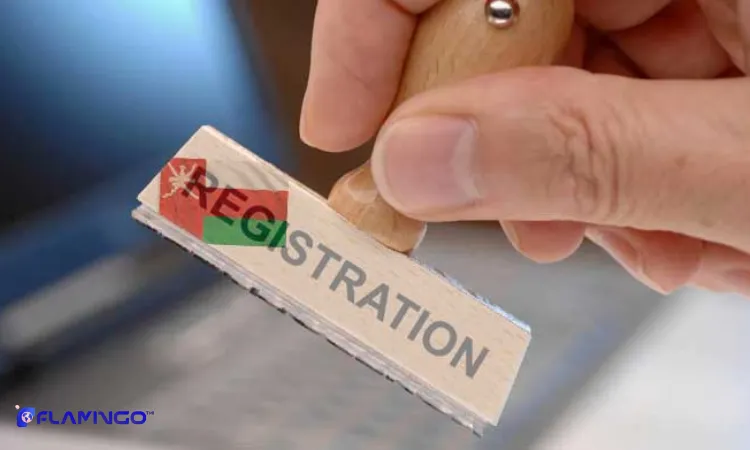Oman has emerged as one of the most attractive destinations for foreign investors and entrepreneurs in the Middle East. With a stable economy, strategic location, and government incentives, Oman provides a business-friendly environment for both local and international companies. If you are planning to set up your business in Oman, understanding the company registration process in Oman is essential to ensure a smooth and successful launch.
This guide provides a step-by-step overview of company registration, including legal requirements, documents, costs, and benefits for investors.
Step-by-step company registration process in Oman
Setting up a company in Oman involves several clearly defined steps. Here’s a detailed step-by-step guide:
Step 1: Choose Your Business Structure
Choosing the right business structure is crucial. Common options include:
Limited Liability Company (LLC): Suitable for most foreign investors.
Joint Stock Company (SAOC/SAOG): For larger enterprises requiring public shareholding.
Branch or Representative Office: Allows foreign companies to operate in Oman without a local partner.
Step 2 : Reserve a Trade Name
Submit your proposed trade name to MOCIIP.
Ensure it complies with Oman’s naming guidelines, avoiding prohibited terms.
Obtain formal approval before proceeding to registration.
Step 3 : Draft and Notarize the Memorandum of Association (MOA)
Prepare the MOA outlining shareholder information, company objectives, and share distribution.
Notarize the document in Oman to meet legal requirements.
Step 4 : Obtain Initial Approvals and Licenses
Submit applications to relevant authorities depending on your sector.
Some businesses, such as tourism, energy, or food, require additional approvals.
Step 5 : Deposit Capital and Open a Bank Account
Open a corporate bank account in Oman.
Deposit the minimum required capital based on the chosen business structure.
Step 6 : Register with the Oman Chamber of Commerce
Register your company with the Chamber of Commerce to gain commercial recognition.
Step 7 : Get a Commercial Registration Certificate
After submitting all documents, MOCIIP issues the Commercial Registration certificate, officially recognizing your company.
Step 8 : Apply for Tax and Labor Registration
Register with the Oman Tax Authority and Ministry of Labor.
Obtain necessary licenses and permits to legally employ staff and operate your business.

Why choose Oman for company registration?
Oman has become one of the most appealing destinations for foreign investors and entrepreneurs in the Middle East. The country’s strategic policies, stable economic environment, and investor-friendly regulations make it an ideal location for starting and growing a business. Below, we explore the key reasons why Oman stands out as a business hub.
Stable economy and political environment
Oman maintains a politically stable and economically resilient environment, which significantly reduces risks for foreign investors. The government follows prudent economic policies and maintains strong relationships with neighboring countries and global partners. This stability is reflected in low inflation rates, controlled public debt, and a commitment to sustainable development projects. For investors, it means predictable business conditions and a reliable framework for long-term planning.
100% Foreign ownership in most sectors
One of the most attractive features of Oman’s investment laws is that foreign investors can own up to 100% of their companies in most sectors, without requiring a local partner. This reform, introduced under the Foreign Investment Law of 2019, allows complete control over operations, decision-making, and profit allocation. While certain strategic sectors like energy, defense, and telecommunications still require local participation, the majority of industries,including technology, tourism, logistics, and manufacturing,are fully open to foreign ownership.
Oman’s personal tax law
Oman does not levy personal income tax, which makes it highly attractive for entrepreneurs, investors, and skilled professionals relocating to the country. Employees and business owners enjoy higher disposable income, and businesses benefit from a cost-effective workforce environment. This tax-friendly policy also increases Oman’s competitiveness relative to other Gulf countries.
Strategic geographic location
Located at the crossroads of Asia, Africa, and the Gulf region, Oman serves as a natural gateway for international trade. Its ports and logistics infrastructure, including Salalah, Duqm, and Sohar, provide direct access to key global markets, enabling efficient import, export, and transit operations. For companies engaged in trade, manufacturing, or logistics, Oman’s location reduces shipping times, lowers transportation costs, and facilitates regional distribution networks.
Modern infrastructure and investment support
Oman has invested billions in developing modern ports, airports, industrial zones, and digital infrastructure, which support business operations and attract global investors. Additionally, the government provides incentives such as tax exemptions, customs duty reductions, and simplified licensing procedures, particularly in free zones and special economic areas.
Investor-Friendly policies and regulatory framework
The government’s commitment to attracting foreign investment in Oman is reflected in transparent legal frameworks, digitalized company registration processes, and continuous support from authorities like the Ministry of Commerce, Industry, and Investment Promotion (MOCIIP). These measures ensure ease of doing business, reduce bureaucratic hurdles, and enhance the overall investor experience.
Legal framework and business environment in Oman
The company registration process in Oman is governed by a comprehensive legal framework designed to facilitate investment. Key features include:
Investment Laws: The Foreign Investment Law 2019 allows up to 100% foreign ownership in most industries and offers tax incentives to encourage investment.
Government Authorities: Registration and approval processes are managed by the Ministry of Commerce, Industry, and Investment Promotion (MOCIIP) and other relevant authorities.
Omanization Policy: Businesses must comply with Omanization requirements, hiring a minimum number of Omani nationals depending on company size and sector.
Ease of Doing Business: Recent reforms have digitized registration processes, making company setup faster and more transparent.

Required documents for company registration in Oman
Registering a company in Oman requires careful preparation and submission of all necessary documents to ensure a smooth and successful process. The Omani authorities, including the Ministry of Commerce, Industry, and Investment Promotion (MOCIIP) and the local Chamber of Commerce, strictly review these documents to verify compliance with the law. Below is a detailed guide on the required documents for company registration in Oman.
- Passport Copies of Shareholders and Directors
All shareholders, directors, and partners must provide clear copies of their passports. This allows the authorities to verify the identity and nationality of all individuals involved in the company. For foreign investors, notarized translations into Arabic may be required in some cases.
- Proposed Business Name Approval
Before registering a company, the trade name must be approved by the Ministry of Commerce. The name should comply with Oman’s naming regulations, avoiding prohibited terms and reflecting the company’s business activities. A formal approval certificate for the trade name is required as part of the registration package.
- Notarized Memorandum of Association (MOA)
The MOA is a legal document outlining the company’s structure, objectives, and shareholder rights. It specifies the shareholding distribution, company activities, and governance rules. The MOA must be notarized by an authorized notary in Oman to be valid.
- Articles of Association
While the MOA defines the high-level structure, the Articles of Association (AOA) provide detailed rules for company operations, including management procedures, voting rights, and decision-making processes. This document ensures transparency and guides daily operations.
- Lease Agreement for Office or Business Address
Every company must have a physical office or registered business address in Oman. A valid lease agreement or property ownership certificate must be submitted as proof of a commercial location. This ensures that the company can be legally contacted for official matters.
- Bank Reference Letters
Authorities often require bank reference letters from shareholders or the company itself. These letters confirm the financial reliability of investors and, in some cases, proof of capital deposit in an Omani bank is mandatory before issuing the Commercial Registration certificate.
- No Objection Certificate (NOC), if applicable
Certain investors or businesses may need a No Objection Certificate (NOC) from previous employers, government authorities, or relevant ministries. This is especially applicable to sectors like education, healthcare, or telecommunications, where regulatory permissions are required.
- Additional Supporting Documents
Depending on the business type and industry, additional documents may be required:
- Licenses or permits for regulated sectors (e.g., tourism, food, healthcare)
- Power of attorney for company representatives
- Omanization compliance documents (for hiring local staff)
- Environmental or safety approvals for manufacturing and industrial companies
Tips for Document Preparation
Ensure all documents are current, valid, and translated into Arabic if required.
Work with experienced consultants like Flamingo Holding to verify document accuracy and completeness.
Submit documents in the proper sequence to avoid delays in the registration process.
By preparing all required documents meticulously, investors can significantly reduce delays and complications, ensuring a smooth company registration process in Oman and a strong start for their business operations.
Cost and timeframe of registering a company in Oman
Understanding the costs and timeframe associated with company registration is essential for any investor planning to establish a business in Oman. The process involves several fees, depending on the business type, industry, and location, as well as a sequence of approvals from various authorities. Below is a detailed overview to help you plan effectively.
Average costs of registering a company in Oman
Commercial RegistrationFees:
Obtaining a Commercial Registration certificate is mandatory for all companies in Oman. The fees typically range from $500 to $800, depending on the company type (LLC, SAOC, branch office, or representative office).
Notary and MOA Documentation:
Drafting and notarizing the Memorandum of Association (MOA) and Articles of Association usually costs between $300 and $500. These fees cover legal notarization and any required translations into Arabic.
Chamber of Commerce Registration:
Registration with the Oman Chamber of Commerce and Industry (OCCI) is required for all commercial entities and typically costs $200 to $400, depending on the size of the company and its share capital.
Licensing Fees:
Licensing fees vary significantly based on the business sector. Regulated industries, such as healthcare, tourism, or food services, may require additional approvals and fees. Licensing in free zones or special economic zones may also differ.
Timeframe for registration company
The time required to register a company in Oman depends on document completeness, the chosen business structure, and the sector of operation. On average:
7–10 business days for initial approvals and trade name reservation
5–10 business days for notarization, MOA, and Articles of Association
3–7 business days for final registration and issuance of the Commercial Registration certificate
Overall, the full process typically takes 7–21 business days. Delays may occur if documents are incomplete, if additional approvals are required for regulated industries, or if government offices experience higher workloads.

Taxation and financial benefits for investors
Oman offers an attractive fiscal environment for foreign investors:
0% Personal Income Tax: No tax on salaries or personal income.
Corporate Tax Rate: 15% on net profits.
Tax Exemptions: 5–10 years for industrial and export projects.
Customs Exemptions: For importing machinery, raw materials, and equipment.
Incentives in Free Zones: Extended tax exemptions, freedom to transfer profits, and duty-free imports/exports in regions like Duqm, Salalah, and Sohar.
Common problems for registering company in oman
While Oman provides a business-friendly environment with investor protections and incentives, foreign entrepreneurs may still encounter challenges during the company registration process. Being aware of these hurdles and planning ahead can save time, reduce costs, and ensure a smoother entry into the Omani market.
1. Omanization Requirements
Omanization is a government policy aimed at increasing employment opportunities for Omani nationals. Companies are required to hire a minimum percentage of Omani employees depending on the industry and company size. For some sectors, especially in retail, services, and technical industries, the required quotas can be significant.
How to overcome: Partnering with experienced business setup consultants like Flamingo Holding helps ensure compliance with Omanization rules. They can guide you in drafting recruitment plans, sourcing qualified local candidates, and fulfilling reporting requirements to the Ministry of Labor.
2. Documentation and Language Barriers
Most official forms and applications in Oman are in Arabic, and foreign investors often need translated and notarized documents. Incomplete or incorrectly prepared documents are a common reason for registration delays.
How to overcome: Working with consultants who are fluent in Arabic and familiar with Omani legal documentation ensures that all submissions are accurate and fully compliant. Flamingo Holding, for instance, provides document preparation, translation, and attestation services to simplify this process.
3. Bureaucratic Delays
Certain approvals, particularly for regulated sectors such as healthcare, tourism, education, or food services, may take longer due to multiple government departments being involved. Additionally, holidays or high workloads in government offices can further extend processing times.
How to overcome: Proper planning and scheduling of applications in advance, along with professional assistance, can minimize delays. Consultants can track applications, follow up with authorities, and advise on priority processing options where available.
4. Sector-Specific Challenges
Some industries require special licenses, environmental approvals, or additional permits, which can complicate the registration process. Foreign investors may also face restrictions in strategic sectors such as energy, defense, or telecommunications.
How to overcome: Engaging a business setup consultant ensures that all sector-specific requirements are identified early, and necessary permits are secured without unnecessary repetition or legal issues.
5. Financial and Compliance Risks
Without proper guidance, investors may inadvertently violate labor, tax, or licensing regulations, leading to fines or operational delays.
How to overcome: Working with an experienced local partner like Flamingo Holding provides full legal and financial compliance support, helping investors avoid mistakes and maintain a smooth operational setup.
By understanding these challenges and leveraging professional consultancy services, investors can significantly reduce risks, streamline the registration process, and focus on growing their business successfully in Oman’s dynamic market.

Why Work with a Business Setup Consultant ? – Flamingo Holding
Setting up a company in Oman can be straightforward, but navigating the legal, administrative, and procedural requirements without local expertise can be time-consuming and challenging. Partnering with a professional business setup consultant ensures a smoother process and maximizes your chances of a successful launch. Flamingo Holding, with years of experience in Oman’s business environment, provides comprehensive support tailored to both foreign and domestic investors.
Save Time and Streamline Processes
Flamingo Holding helps you avoid unnecessary delays and repetitive visits to government offices. From trade name reservation and license approvals to registration with the Chamber of Commerce, our team ensures each step is completed efficiently. This allows entrepreneurs and investors to focus on business strategy and growth, rather than administrative hurdles.
Legal Support and Compliance
Compliance with Oman’s investment laws, labor regulations, and Omanization policies is critical for any new business. Flamingo Holding provides expert guidance to ensure all documents, contracts, and registrations meet local legal requirements. Our legal support minimizes the risk of fines, delays, or administrative complications, giving investors confidence that their company is fully compliant from day one.
Post-Registration Services
Beyond company registration, Flamingo Holding offers end-to-end post-registration services, including:
- Corporate Banking Assistance: Opening business accounts, facilitating capital deposits, and handling international transactions.
- Visa and Immigration Services: Obtaining investor visas, employee permits, and family residency approvals.
- Accounting and Financial Management: Setting up accounting systems, bookkeeping, and tax compliance.
- Human Resources Support: Assistance with recruitment, contracts, and Omanization compliance.
Tailored Solutions for Every Investor
Whether you are launching a small LLC, a large industrial enterprise, or a regional branch of a multinational company, Flamingo Holding provides customized solutions based on your business type, sector, and long-term goals. Our local knowledge combined with international business experience ensures that investors not only establish their companies efficiently but also gain a strategic advantage in Oman’s competitive market.
By choosing Flamingo Holding as your business setup partner, you are not just hiring a consultant—you are gaining a trusted local partner dedicated to helping your business thrive in Oman’s dynamic economic environment.
FAQs About Company Registration process in Oman
1.Can a foreign investor own 100% of a company in Oman?
Yes. Under Oman’s Foreign Capital Investment Law (2019), foreign investors can own up to 100% of their companies in most sectors without a local partner.
2.How long does it take to register a company in Oman?
The process usually takes 7 to 21 business days, depending on the company type, sector, and completeness of documents.
3.What is the cost of company registration in Oman?
The average cost ranges from $1,000 to $2,000, including registration, notarization, Chamber of Commerce, and licensing fees.
4.What documents are required to register a company in Oman?
You’ll need passport copies of shareholders, trade name approval, notarized MOA and AOA, office lease agreement, and bank reference letters.
5.Is personal income tax applicable in Oman?
No. Oman has 0% personal income tax, which makes it highly attractive for investors and professionals.
6.What are the main company types available in Oman?
The most common structures are Limited Liability Company (LLC), Joint Stock Company, and Branch Office.






